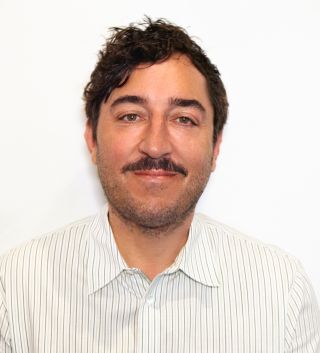Changing Charts
Indie rock darling Ed Droste becomes a therapist.
By Tyler Woods published November 7, 2023 - last reviewed on November 7, 2023

Ed Droste was the lead singer of Grizzly Bear, one of the most successful indie rock bands in recent memory. The group’s 2009 album Veckatimest debuted at #8 on Billboard’s Top 200 chart to critical acclaim. In 2020, Droste enrolled in a graduate program in family therapy, then completed clinical training in a Los Angeles facility for LGBTQIA+ individuals, and is now in private practice. He recently spoke to PT about why he’s looking forward to hearing about other people’s lives rather than talking about his own.
What led you to give up music for a career as a therapist?
First and foremost, I’ve benefited so much from therapy myself. Also, I was just really burned out being a touring musician. I loved it and I’m grateful for it, but as time went on, I didn’t feel as fulfilled by it as I used to, and it was honestly bad for my mental health.
How was your mental health negatively affected as a musician?
There’s a misperception of “living the dream.” The isolation can be intense on the road, away from your friends and loved ones, on a bus 24/7, in close quarters for months at a time. Your bandmates are family, in a way, but that’s not the same; they’re also your coworkers. In the back of my mind, I couldn’t picture doing it for another 15 years, or even another five. That doesn’t mean I’ll never make music again. Never say never.
Did you consider other options?
The only thing I’ve ever done for work was the band. There was a huge sense of anxiety about how you start all over. I was thinking about therapy, but it’s intimidating to think, “Okay, I’m going to just go into this industry that I have no experience in.” My therapist at the time asked why I didn’t just try it and see if I liked it. I thought, Yeah, what’s stopping me? What am I afraid of? So I did, and I loved it.
What has surprised you most about working as a therapist?
I’m surprised at how creative it feels, even having been in a creative field for so long. Each case is different, and you have to problem-solve in real time and work with people’s instantaneous emotions or reactions. That feels like a creative process where you’re helping someone understand their past or paint a picture of the future they want. I didn’t expect that, and it’s been fulfilling.
What have you learned about yourself since making this change?
I’ve been in therapy on and off since I was 20, so that’s 24 years. What’s amazing is that every client helps me grow and learn. I’ve learned that I’m more patient than I realized. I was fearful of bringing impatience into a clinical setting. Obviously, I don’t have a long history in this field at all, but I’ve worked with some high-crisis clients and I’ve been pleasantly surprised that I’m able to roll with situations more than I thought I could.
Does your time in the band inform this work at all?
I think so. Being in a band, it’s like you’re married to three other people. There’s conflict, and you’re constantly having to sort through interpersonal stuff. I think I learned a lot about myself navigating that. There’s also so much uncertainty: Will people like this album? Are we growing? Did we peak? Are we flatlining? Is it over? I had to do a lot of work on myself and in therapy to try to stop those intrusive thoughts and realize, What can I do about it right now? Nothing. So I’m wasting my energy worrying about something that’s out of my hands. Coping with intrusive thoughts is definitely something I work on with clients now. It can be so freeing when it works.

Do you plan to treat other musicians?
I’ve gotten emails from people in the industry who want to do a consultation. Touring and trying to make ends meet is a very specific sort of experience. I know it’s a niche, and these are not the only people that I want to treat, but it is cool having that history of 15 years to draw on.
Did your professors or supervisors know your background?
I certainly had no indication that any of them had ever heard of me. It’s been great. There was a part of me that was craving structure and regularity and not having my success be dictated by public perception. After I posted about my career change on Instagram, I was a bit surprised that it got traction and that so many outlets picked it up.
After the news of your career change broke, some fans said your music had already been a form of therapy for them. What did that mean to you?
It’s great that it’s been helpful to people.
Sometimes, I forget what it was like before I was in the music industry, the emotional bond and connection I had with music. Any music you have a strong reaction to can be therapeutic. So it was nice to see that. But no, my intention with my songwriting was never to help people get through a breakup. You write music for your own reasons.
Do you think your fans will reach out to you for sessions?
My supervisor and I have had a conversation about that. If someone did want to come to me for that reason, I think that’s something we’d need to talk through in session.
